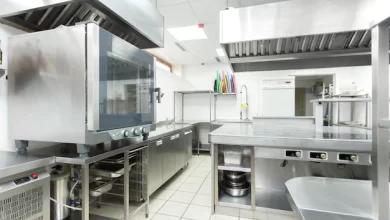
Despite a vast traveling population, hotels in India have an average occupancy rate of less than 60%. Hotels cannot considerably lower their rates to attract. More customers because they do not want to risk weakening the hotel’s brand value. On the other hand, due to the stringent full-day booking norms, some travelers do not reserve accommodations.
Travelers with a stopover before a connecting flight should stay at the airport rather than paying for a hotel room for the entire day. Business travelers frequently head straight to the office or freshen up at the airport to avoid spending. A whole day when an hourly hotels in bangalore is only needed for a few hours. Hotels may enhance occupancy by attracting this underserved category of visitors by providing hourly rooms.
Different types of travelers use hourly base hotel
Travelers in transit – Any regular traveler may relate to the situation of having a lengthy stopover before a connecting flight or train. People strain to locate a quiet area and simply wait comfortably. They will be able to freshen up and rest before the next trip by using ‘Room by Hour.’
Business travelers – Business travelers sometimes find themselves in situations when they arrive early in the morning in a new location to attend an event and merely require a place to rest. Or, they have a late-night flight but must depart the accommodation by noon or face being charged for the entire day. Full-day reservations with strict check-in and check-out timings become inconvenient for business travelers.
Backpackers – Backpackers love to spend the entire day exploring, meeting locals, and learning about the local culture and traditions of each new place they visit. They have very little desire to spend the day in a hotel room. All they need the space for is to stay the night and sleep well. It would be much more efficient for them if they could rent hourly hotels in bangalore only for the night and pay only for the time they remained.
Leisure travelers – Many people dream of experiencing the regal hospitality of five-star luxury hotels. But only a few can afford it. This ideal may be realized by the notion of “room by the hour.”
Health traveler – A large population from rural regions and tier 2 cities must commute to metropolitan areas to receive healthcare services. They need to stay in a hotel in the new city for a few hours before going to the hospital. Day-use is ideal for their requirements.
Religious traveler – Religious travelers may also need a hotel for a few hours to refresh themselves before departing for their journey.
Academic traveler – Students from villages or tier 2 cities must travel. To the nearest test centers in other cities to take the exam. They seek employment and go to another city for interviews. All they need is a place for a few hours to prepare.
Final words
Technology must adapt, and capacity must be established to accommodate this transition. Charging guests for a whole day or per night has long been the general practice for hotels across the world. However, this is about to change with the new notion of renting rooms on an hourly basis. Which is currently being provided by several start-ups.


